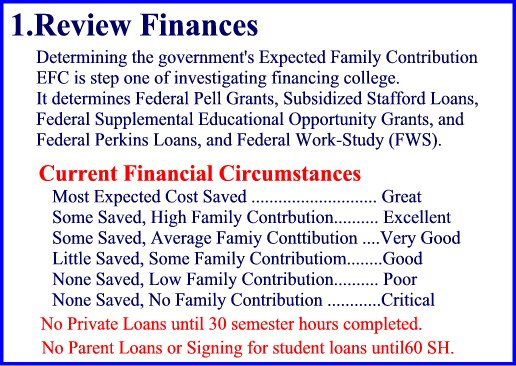|
Choosing a College
1)
I have been accepted at a good school and am afraid I can't do the
work. Answer: Unless you have excellent
academic ability as indicated by the previous chart you should try to attend a school in
which you are in the middle half of the freshman class. For most students college is more than an academic experience and competing against students that are
much stronger academically will lower grades and deprive you of many nonacademic experiences. While standardized test are not a good predictor of
success as measured by graduation, they do well predicting academic and career success. If your SAT is 1000 and the average at
your good school is
1,100 then you may graduate but your grades and non-academic experiences may be
low.
2) I have been accepted at a GOOD BUT
EXPENSIVE SCHOOL, should I attend?
Answer: There are many positive aspects
to attending an expensive liberal arts college
away from home but the economic return for such an investment is negligible.
Borrowing means repayment and most find repayment difficult. A tight
post-college budget due to excessive loans is very difficult to endure
especially after the sacrifice made to finish college. Live at
home,
go public, CC if necessary, and if after two years you think the added investment is worthwhile,
go for it.
See
Students Personal Finance Internet Library and
collegeconfidential.com/ |
3 How can I maximize
college financial aid. Answer:
Colleges compete for students and
award financial aid accordingly. They start with your Expected Family
Contribution. Students with
high standardized tests scores are sought after. If
relative to other freshman applicants your scores are high you receive more aid.
Students with
a desired skill be it the Arts, Sports, etc. receive more
aid. If you have high relative scores or skills a private school close to home may be less expensive after financial
aid than an inexpensive live-in
public school. See
Financial
Aid
4) Warning: Colleges will
create a first year financial plan based upon your savings, grants and
scholarships and a number of loans. Loans that may be federally sponsored,
private, and even from the college. There is nothing logical for first
year loans. Nothing. Loans can be as addictives as credit cards and just
as dangerous. |






